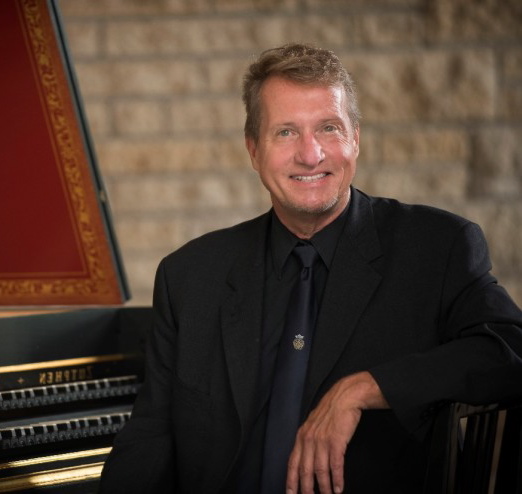Bach Society Houston brings “St. John Passion” to vivid life

Rick Erickson led Bach Society Houston in the “St. John Passion” on Sunday.
J.S. Bach’s St. Matthew Passion, spanning three hours and marshaling a double chorus and orchestra, brings the Crucifixion story to an epic scale. The composer’s St. John Passion, thanks to its two-hour length and more compact forces, boasts tautness and concentration — exactly the qualities the Bach Society Houston emphasized in Sunday’s performance.
In the first of two pre-Easter St. John performances, director Rick Erickson brought out the work’s vitality, incisiveness and dramatic sweep. The Bach Choir and period-instrument Bach Orchestra numbered about 18 musicians each. The choir, a professional group, supplied the soloists.
The sole exception was the Evangelist of tenor Tony Boutté, who was the performance’s linchpin. Boutté’s ease and naturalness gave the narration an air of direct, person-to-person communication.
That conversational immediacy became all the more compelling when Boutté seized on Bach’s most dramatic word-painting. For instance, when he told of Peter’s remorse after denying Christ for the third time, Boutté’s voice welled up plaintively in the tortuous melisma on the words weinete bitterlich (wept bitterly).
The Bach Choir picked up on that vividness. In the chorales, the group’s polish, clarity and subtlety magnified the text’s messages, from the stillness of the introspective moments to the fullness and resonance of the fervent ones. When it portrayed the bloodthirsty mob, the choir sang with a bite and vigor that captured the ferocity without needing a bigger group’s raw force.
The somewhat reverberant acoustic of Christ the King Lutheran Church kept the opening chorus’s contrapuntal intricacies from registering as cleanly as they probably might have otherwise. But the music’s sense of turbulence still came through, thanks to the choir’s fullness and momentum. And in the climactic chorus, the group’s warmth helped bring out the lilt and tenderness of music that’s almost a lullaby.
The Bach Orchestra’s deftness suited such moments as that, and its vitality and sharpness helped capture the mob’s ferocity. But in the arias, Erickson sometimes let the group overpower the soloists. In the first alto aria, “Von den Stricken meiner Sünden,” the two obbligato oboes all but covered the graceful singing of countertenor Coby Bowers.
Like most of the soloists drawn from the chorus, Bowers’ voice was on the light side. Baritone Jorge Belonni sang nimbly in the scurrying aria with chorus, “Eilt, ihr angefochtnen Seelen,” but the orchestra often obscured him as well. Though alto Emily Kern brought a full, weighty tone to “Es ist vollbracht,” she, too, was largely lost in the aria’s vigorous middle section.
Tenor Dylan Morrongiello’s voice had a bit more heft, though, and he fared better in conveying the impact of his two anguished arias. Baritone Aaron Harp brought an appealing mellowness to the optimistic “Mein teurer Heiland.” Sopranos Nini Marchese and Renee Rybolt sang cleanly, yet their voices had an edginess that worked against their arias’ lyricism.
In the midst of all this, Jesus’ words gained gravitas from the sheer darkness of baritone Christopher Besch’s voice. But it really was Tony Boutté’s Evangelist who made the Easter saga come alive.
Bach’s St. John Passion will be repeated 3 p.m. Friday at Christ the King Lutheran Church. bachsocietyhouston.org; 713-400-0514.